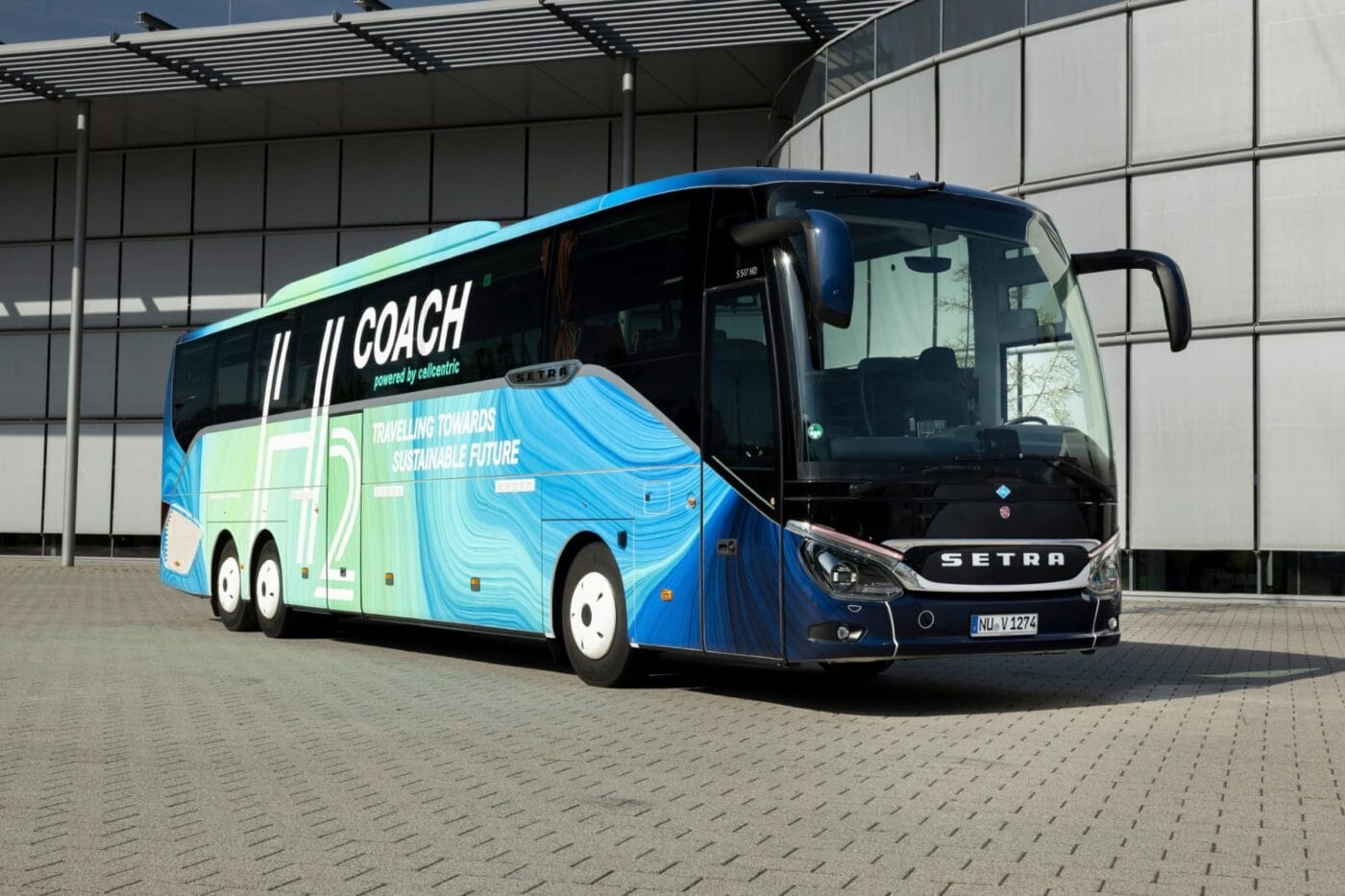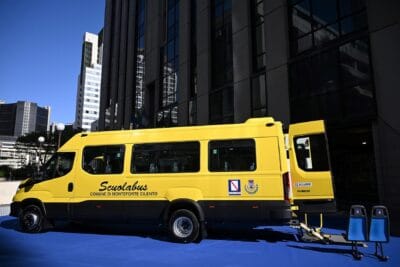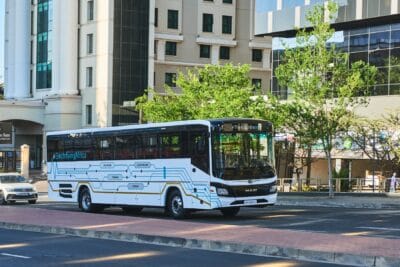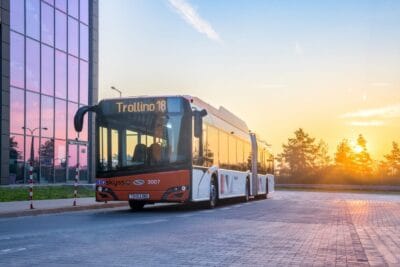Daimler Buses puts the precursor to an H2 coach on the road
Daimler Truck is known for seeking synergies between its future electric buses and electric trucks. This tactic is set to be employed once again with the hydrogen vehicles currently under development. As Daimler Buses has now announced, its Setra brand is currently testing a technology carrier with a hydrogen fuel cell drive, which is intended to pave the way for a series-production coach with the corresponding technology. The GenH2 Truck from the group’s truck division is providing the drive components for this project. Daimler Truck has been officially working on this truck since 2020, and certainly even longer behind the scenes. However, the completion of the hydrogen truck has recently been deprioritised as part of Daimler Trucks’ cost-cutting measures: planned series production has been postponed from 2027 to the early 2030s.
The mutual integration of the development departments is also likely to have an impact on the group’s H2 coach plans. In any case, Daimler Buses emphasises that the company’s first electric coach is scheduled for the end of the decade, but will explicitly feature battery electric drive (BEV). A fuel cell coach (FCEV) is then to “go into series production in the next step.” The manufacturer is not giving any more precise details about the timetable, but the early 2030s seems a good guess – similar to the GenH2 truck. It is also clear that Daimler Buses, like its truck division, is sticking to the dual-track development of BEVs and FCEVs, but wants to get the BEVs ready first.
Nevertheless, the company is presenting the H2 Coach technology demonstrator at an early stage. The bus is “largely based on the drive components of the Mercedes‑Benz GenH2 Truck fuel cell truck,” according to the company. The range on a single tank of fuel is expected to be at least 800 kilometres. At the heart of the 13.9-metre-long high-decker with the model designation S 517 HD is a combination of two hydrogen tanks with a total capacity of 46 kilograms and a fuel cell unit with a total output of 300 kW from Cellcentric (a joint venture between Daimler Truck and the Volvo Group).
The fuel cell unit converts the hydrogen on board into electrical energy, which is then converted into mechanical drive energy by the central motor. According to Daimler Buses, this electric motor is designed for a continuous output of 320 kW and a maximum output of 400 kW, with a torque of 1,368 Nm and a maximum torque of 2,470 Nm. A battery pack is also installed, but it is much smaller than the battery in a BEV. The battery’s sole purpose is to store electrical energy (e.g. from recuperation) and, depending on the situation, to provide power support in order to keep the fuel cell in its optimum operating range.
According to the manufacturer, the S 517 HD converted into the H2 Coach has a gross vehicle weight of 24.7 tonnes and, based on a TÜV report, has been approved as a test vehicle in accordance with Section 19.6 of the Road Traffic Licensing Regulations. This means that, in addition to the test series on Daimler Buses’ internal test grounds, the test vehicle may also be used for test drives on public roads. The H2 Coach is stationed in Neu-Ulm, where it is undergoing continuous development. Neu-Ulm is regarded within the Daimler Truck network as a centre of excellence for coaches of all drive types.
As far as Daimler Buses’ e-roadmap is concerned, the BEV city bus eCitaro (which has been available on the market since 2018 and will also be available in a version with a fuel cell as a range extender from 2023) is to be followed in the coming years by a battery-electric intercity bus. The eIntouro is set to celebrate its world premiere at Busworld Europe in the autumn and, in line with the Group’s common parts strategy, will share its batteries with the eActros 600 long-distance truck, among other things. As mentioned, a further expansion of the range is planned towards the end of the decade with the first BEV coach.
Daimler Buses has been developing such a battery-powered coach for some time, since 2022, as part of a project consortium. At that time, the company joined forces with research institutes and industry practitioners to form the Electrified Coach project, abbreviated to ELCH. The aim of the project, which is funded by the German government, is to develop a modular powertrain, including two demonstration vehicles. The findings will then form the basis for the “planning of cost-effective production and assembly processes for electrically powered coaches,” as Daimler Buses announced at the time. Partners in the project, which is coordinated by Daimler Buses, include the Karlsruhe Institute of Technology (KIT), the University of Mannheim, the Technical University of Kaiserslautern and the operator Flix with its green Flix long-distance coaches.
This article was first published by Cora Werwitzke for electrive’s German edition.





0 Comments